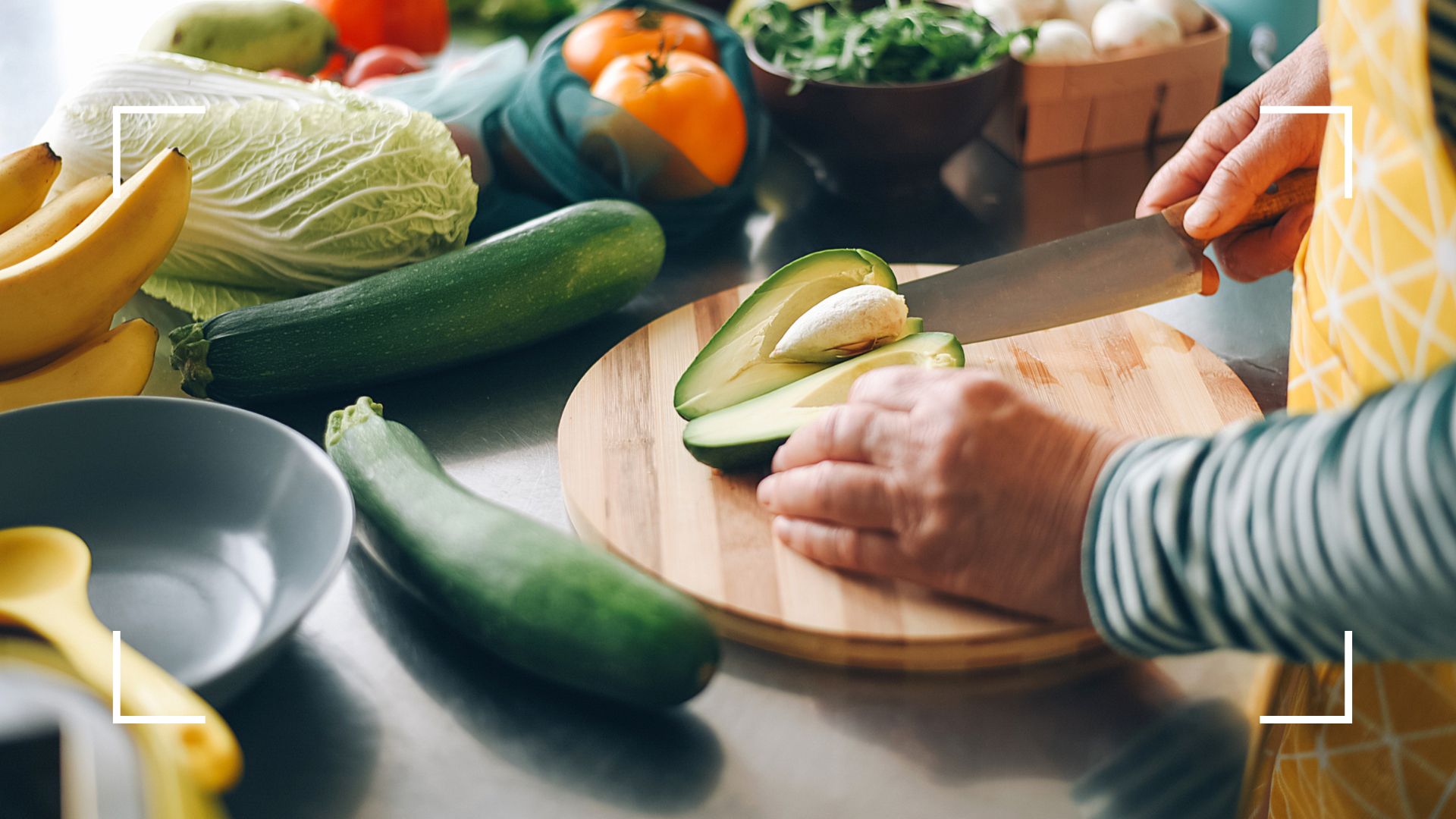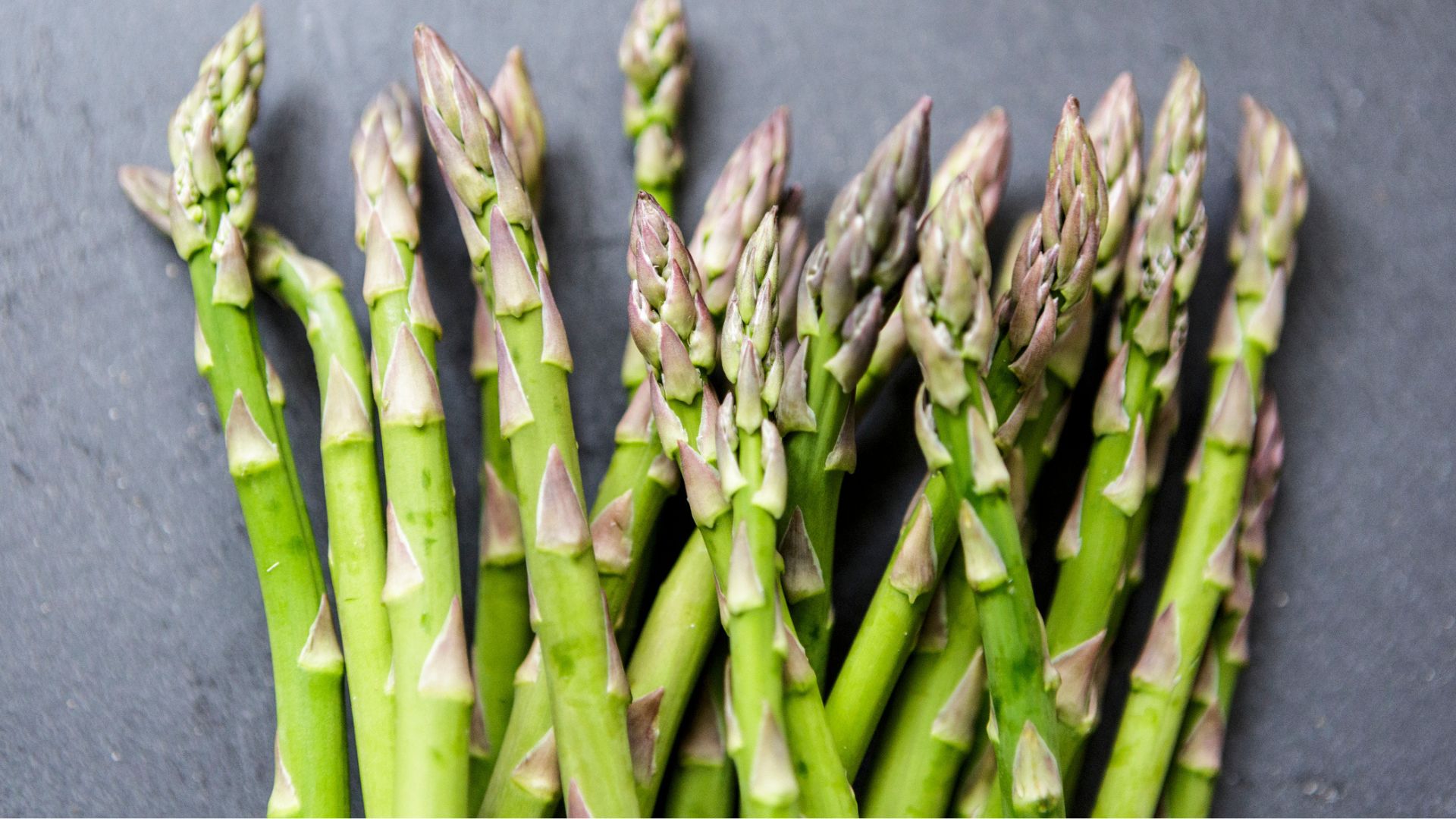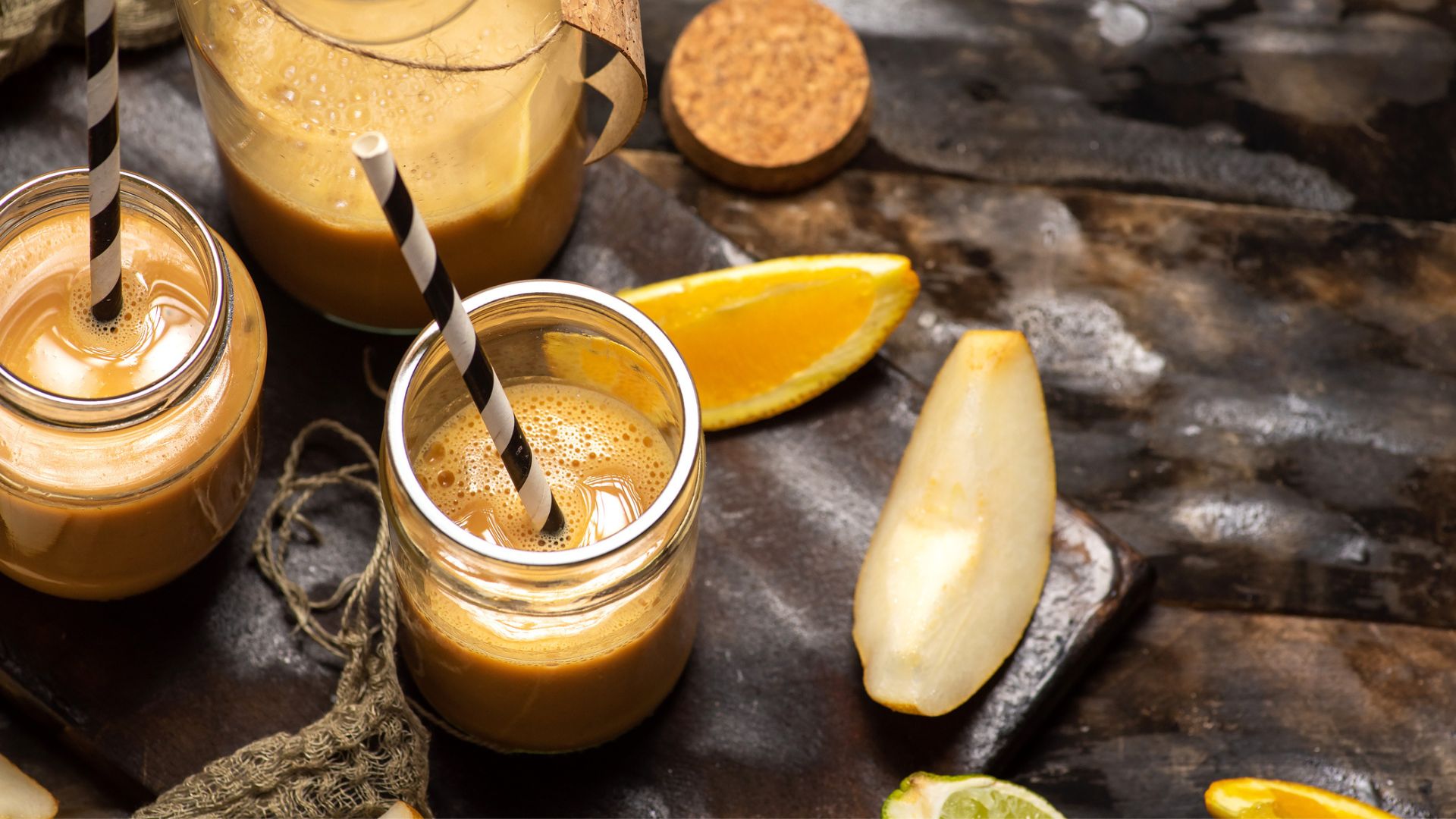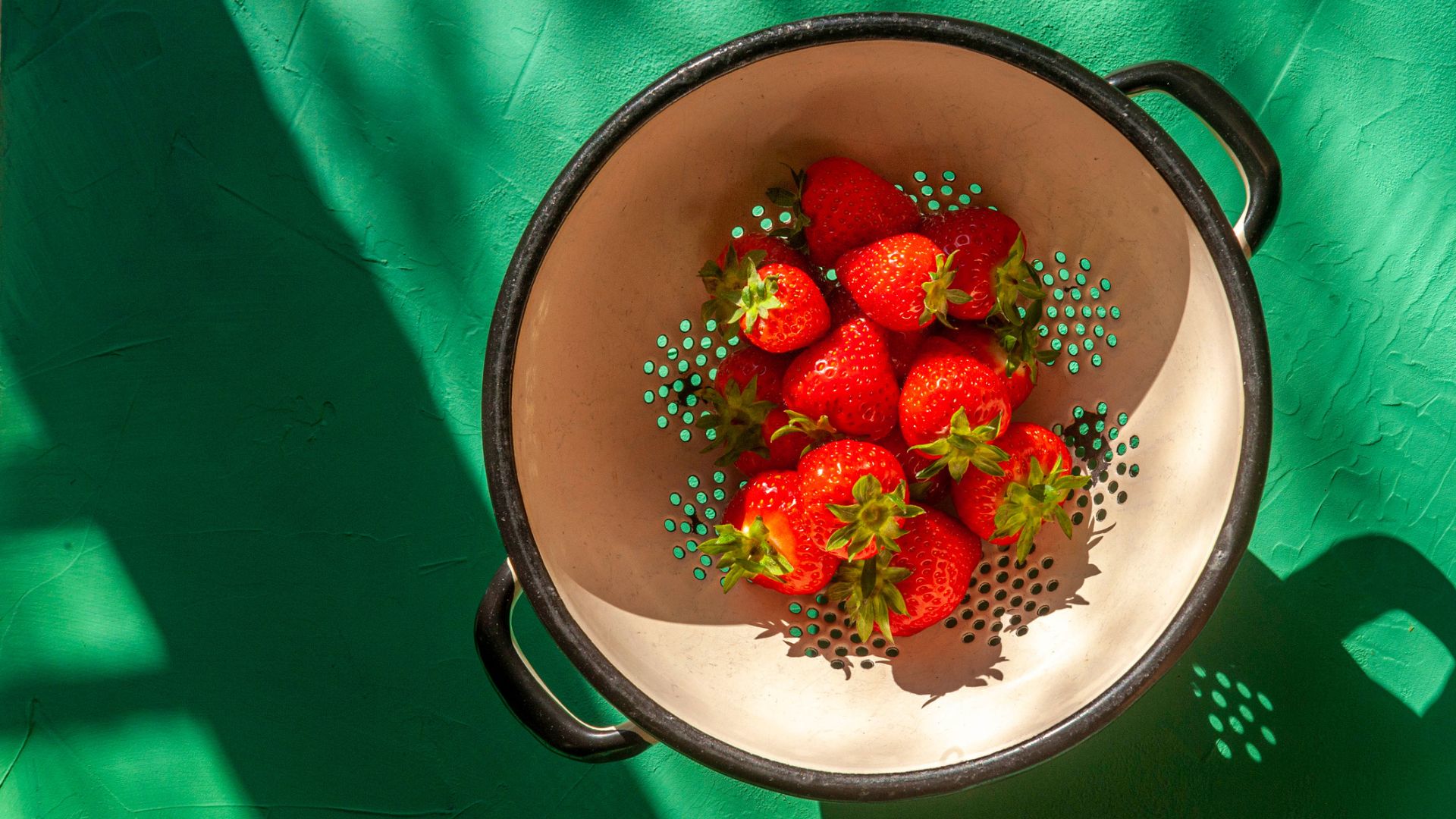
Adding in some of the best gut-healthy foods is the easiest way to go if you're looking to improve your gut health and make a change. There are so many to choose from, so you may also be eating many of them already.
There are more than 40 trillion bacteria in the body, essential for everything from digesting food to protecting against infection, and most of them live in our gut. So, it makes sense that we'd want the gut - more formally known as the gastrointestinal tract, which is made up of the oesophagus, stomach, and intestines - to stay healthy.
We need a diverse microbiome to improve our gut health and have a healthy gut, says certified nutritionist Eli Brecher, pointing to studies by the University of Arkansas and the University of Nottingham. "One way we can encourage this microbial diversity is by consuming a varied and colourful diet, and avoiding eating the same thing every day, even if it's healthy," she says. To help you find the best gut-healthy foods to swap into your diet, we've asked Eli and other nutrition specialists for their recommendations.
Gut-healthy foods
1. Fermented foods
Perhaps among the most famous gut-healthy foods around are fermented foods. This includes the likes of sauerkraut, kimchi, and kefir, along with tempeh and miso - and kombucha, but we go into more detail about this later.
"These contain probiotics, which are friendly bacteria that are great for gut health," says Brecher. It's this bacteria that helps the body in many ways, fighting off bad bacteria when there's too much around and helping you feel better when you're ill.
2. Avocados
Brunch fans will be pleased to hear that as well as being an excellent accompaniment to eggs, avocados are a top 10 food for gut health. "It's not just a food trend, avocados are packed with gut-friendly nutrients," confirms nutritionist and gut health specialist Helena Thomas Harman, who works with Holland & Barrett.
"As well as being a source of 'good' fats, one avocado contains a whopping 13g fibre, helping you on the way to a happy gut. Research by the University of Illinois also found participants who ate an avocado every day had a more diverse gut microbiome, which helps to break down fibre and support gut health," she says.
3. Asparagus
This rich green vegetable is rich in prebiotic fibre, explains Brecher. "This is the fuel for probiotic bacteria to feed off," she explains, so you need enough of both to keep your gut bacteria in good health.
Asparagus is also a good source of vitamin K, research by the University of Newcastle explains, which is an essential nutrient for the gut as it optimizes the good bacteria while lowering the number of bacteria that can cause illness, such as Aeromonas and E. coli. Vitamin K helps with blood clotting and bone health too though, research from Saint Luke's Hospital in Missouri, USA, reveals.
"The same prebiotic fibre can also be found in onions, garlic, slightly under-ripe bananas, oats, and Jerusalem artichokes," she adds.

4. Chia seeds
You've probably heard all about chia seeds. They've become known as a 'superfood', which means they offer maximal nutritional benefits for minimal calories. Many people turn to them when wondering what to snack on when dieting since they are also high in protein.
When it comes to our gut health, chia seeds keep their superfood reputation as they are a soluble fibre, explains Harman, which means they feed the gut bacteria and help it work at its best.
5. Oats
Supporting gut health means supporting digestion and oats, whether that's combined together in porridge or overnight oats or made into a tasty snack, are ideal for this. They're also among the best high-protein, low-calorie foods around.
"Oats are one of the best foods to support digestion, as there is 5g fibre per 50g serving, per the FDC, and contain soluble fibre. This has been shown to support gut health by increasing the level of 'good' bacteria in the gut," says Harman.
6. Pears
"Pears are another prebiotic food that feeds gut bacteria," explains Brecher. "They also contain pectin, a type of fibre that helps lower cholesterol."
Thanks to the pectin, pears are also thought to be beneficial for relieving constipation. In a study by Jinling Hospital in China, researchers found that when adults included 24g of pectin per day into their diet, they found relief from constipation and had increased levels of beneficial gut bacteria.
Having regular bowel movements is a good sign that your gut is healthy. Any discomfort in this area, stomach problems, persistent gas, or constant bloating is a sign that things aren't as they should be.

7. Kombucha
Kombucha is perhaps one of the more famous gut-healthy drinks around. It's also one of the best low-calorie, non-alcoholic drinks in a can to enjoy if you're looking for alcohol alternatives.
“Kombucha is a mildly fizzy, fermented cold tea drink with a slightly sour flavour that can be made in various flavours," says Harman. "Fermented foods like kombucha are made from bacterial cultures which produce probiotics during the fermentation process. Thanks to this bacteria content, it may help to maintain a healthy population of microorganisms in your gut. This can support digestive health."
8. Lentils
Lentils, along with other legumes like peas, chickpeas, and kidney beans are another excellent way to maintain a healthy gut, Brecher says. "With around 15g of fibre per cooked cup, lentils are a great way to get more fibre in and support your gut health," she explains.
For a simple swap, opt for a vegetarian or vegan bolognese made with lentils in the sauce instead of classic mince. Once tender and covered in sauce, they don't taste too different.
9. Berries
Strawberries, blueberries, blackberries, and other types of berries are jam-packed with antioxidants. "These antioxidants help to protect the gut lining from oxidative stress," says Kaya Jones, nutrition expert and founder of Raise and Replenish. The symptoms of this type of stress include fatigue, memory loss, muscle and joint pain, headaches, and an increased risk of infections, so are best avoided where possible.
They are also loaded with prebiotic fibres for the balance of the microbiome, she says. "This helps to reduce inflammation in the gut and the fibres contain enzymes that aid digestion."
But perhaps most importantly, she adds, "Berries are so accessible and easy to add into your diet as a snack, smoothie ingredient, or breakfast topping as you can pick berries up almost anywhere." So, if you're going to add any one of these gut-healthy foods to your diet, it should be this one.

10. Ginger
Ginger is a juice and smoothie essential for good reason. It's anti-inflammatory and anti-nausea properties are famous but, as Jones says, from a gut health perspective it's also hugely beneficial.
"Ginger helps digestion by stimulating the production of digestive enzymes and is a natural laxative," she explains. "By reducing inflammation in the gut, we absorb more essential nutrients from the food we consume, thus improving our overall health."
11. Flaxseed
You may have heard of flaxseed before - it's one of the most popular health supplements around but all the hype isn't for nothing, explains Jones.
"Flaxseed is also one to keep an eye out for when looking to add sustenance to your diet. It’s rich in dietary fibre and super easy to add to smoothies, yoghurts or salads," she says. "When it’s mixed with water, it can help promote regular bowel movements. It’s also massively anti-inflammatory which can then help reduce gut inflammation and reduce gut discomfort."
12. Inulin
Inulin is another great supplement to a healthy diet for anyone looking to improve their gut health, Jones suggests. It's a fermentable prebiotic fibre beneficial for a healthy gut microbiome and is massively healing, she says.
"It acts as a food source for the healthy bacteria in your gut. The richest source of inulin as a food source is chicory root, but it can also be found in onions, garlic and Jerusalem artichoke."
What's the best diet for gut health?
If you're looking to change up your eating habits to support better gut health, there are a couple of ways to go about it. Overall, the experts recommend sticking to a diet that's high in fibre and rich in plant-based foods, while making sure your stress levels stay low. This includes plans such as the Mediterranean diet, where the focus is on fresh foods, fruits, vegetables, healthy fats, and fibre.
"Eating a diet rich in fibre is one of the best ways to support our gut. We should be aiming for 30g of fibre per day, but the average intake in the UK is only 17g," says Brecher. "Fibre-rich foods include vegetables, fruit, nuts, seeds, whole grains, legumes, and pulses, so a diet that's also rich in a wide variety of plant-based foods is the simplest way to ensure you're getting the fibre you need while nourishing your gut microbiome."
Alongside this, Jones adds, it's worth looking at how your diet and lifestyle play into how you deal with stress. "It's just as important as diet when it comes to gut health," she explains. "In addition to reaching for the obvious pro and prebiotics to help gut health, have a think about what else you can do to generally destress. Yoga and meditation are great options for physical exercise and help to calm your mind. Consuming foods and supplements that contain Ashwagandha, Cacao, Lions Mane and Magnesium are great too as they are soothing for both the mind and the gut."
Why gut health is so important
- The gut and the brain are linked: "With 90% of serotonin (the 'happy hormone') being produced in the gut, it is known as the 'second brain', because the gut has a nervous system of its own, with more neurotransmitters than the brain’s central nervous system," says Brecher.
- The gut is linked to the immune system: "80% of the immune system is located in the gut," the nutritionist says. "Having a healthy gut microbiome plays an important role in regulating your immune system so that it can respond to injury or infection without attacking healthy body tissue."
- The gut produces vitamin K: "This nutrient promotes nutrient absorption, supports energy levels, and eliminates metabolic waste and toxins from the body," she says.
- There's a strong relationship between your gut and sleep quality: "Imbalances in the gut microbiome are associated with increased risk of sleep disturbances and poorer sleep quality. This is due to the interaction between gut bacteria and the regulation of sleep hormones," says Harman, so improving your gut could help you learn how to sleep better.
- The health of your gut and potential weight gain are linked: “Gut bacteria produce compounds known as short-chain fatty acids (SCFAs), which influence the production of the hormones responsible for the feeling of hunger and fullness," she says. "Individuals with healthy gut bacteria tend to also produce more SCFAs, which leads to reduced hunger and increased fullness. This has a direct impact on eating habits and weight."







